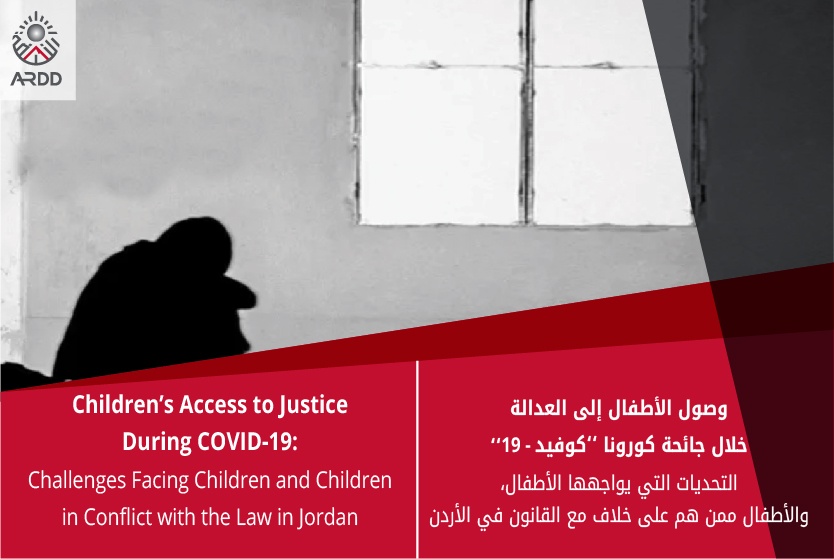Jordan has made progress over the past years, yet, there remain significant challenges in ensuring the rights of children and children in conflict with the law in the country. Over the past year, ARDD Legal Aid Department witnessed a significant and concerning, increase in the number of children that are either victims or perpetrators of crimes. Some of the most concerning trends observed by ARDD follow:
· The number of theft cases that ARDD has dealt with has doubled in the last two years.
· The number of children begging, which is an offense, has also increased since the start of the pandemic.
· There has been a noticeable increase in the number of cases of sexual abuse and exploitation involving children.
· The number of children involved in drug-related offenses has been increasing each year.
· ARDD has received numerous inquiries from families asking for legal advice and advice to deal with cybercrimes involving their children, with slightly higher numbers of boys than of girls.
· The economic impact of COVID-19 has contributed to an increase in the number of child labor cases and related problems; unpaid wages, work-related injuries and employer-employee disputes are more prevalent.
In addition to exploring these trends, the report looks into the challenges facing children and children in conflict with the law with regard to the justice system in Jordan, from legal practitioners’ point of view. Following established categories in the field, the report looks into three challenges that hinder the creation of a child-friendly justice system:
· Challenges during judicial proceedings
· Challenges after judicial proceedings
· Challenges to the overall dignity and well-being of children
The report concludes with a set of three main recommendations as follows:
1. Legal empowerment of children and children in conflict with the law
Children need to be informed about their rights. They should be educated about their rights, empowered through legal awareness to avoid conflict with the law and be equipped to seek out reliable legal advice when they face legal challenges. Peer-to-peer work and street law methodologies are among the most important tools to empower children and children in conflict with the law.
2. Provision of legal aid and related services
Continued provision of free legal services to children and their families is essential. This is especially important given the vulnerable economic situation that many families currently face due to the COVID-19 pandemic. Such services should be effectively integrated within the provision of psychosocial support services in order to prevent future offending and help children reintegrate. It is also vital that the capacity of drug and alcohol rehabilitation services be expanded in order to meet the growing number of cases of children in conflict with the law.
3. Legislative reform
Continued legislative reform is required in order to ensure the rights of children in conflict with the law. There must be efforts to comprehensively review all laws, regulations, and instructions that directly or indirectly affect children in order to ensure that the rights of children are respected. In particular, regardless of the type of offense, all offenses committed by children should be dealt with by specialized juvenile courts.


